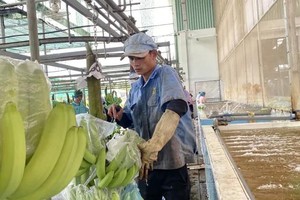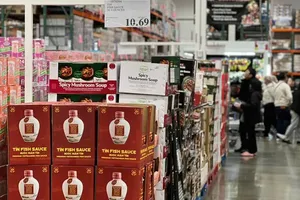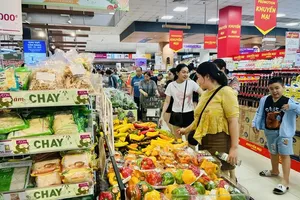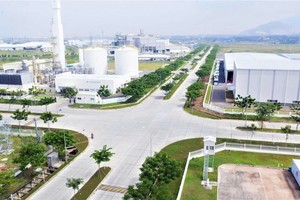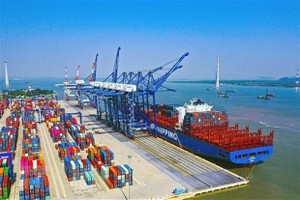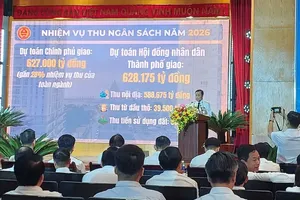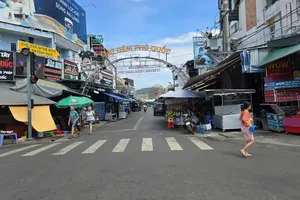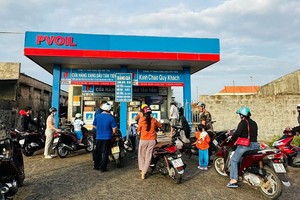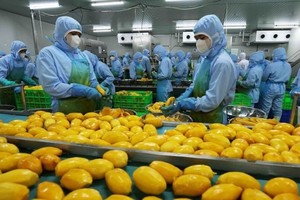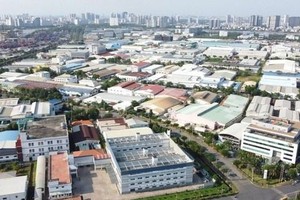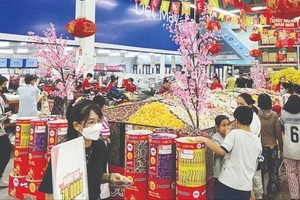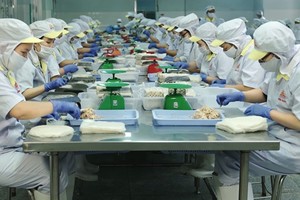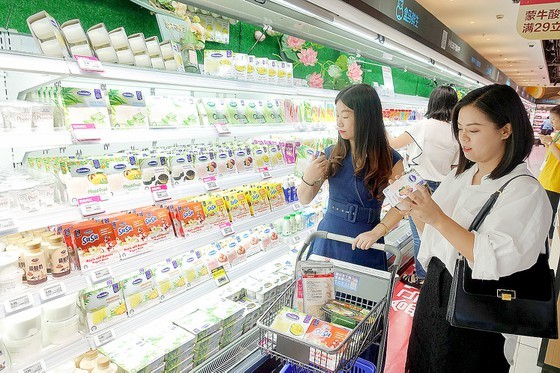
At the conference on promoting exports of agro-forestry-aquatic products into the EU market held by the People’s Committee of Ho Chi Minh City in association with the MoIT and the Ministry of Agriculture and Rural Development (MARD) on June 30, Mr. Nguyen Thanh Phong, Chairman of the municipal People’s Committee, emphasized that the EU is not only a potential market for enterprises in HCMC but also for those across the country. The important matter is how to support enterprises to pass the technical barriers, and step by step approach this market quickly and firmly.
Analyzing the potential of the European market, Mr. Nguyen Thanh Phong emphasized that the EU is currently an important trade partner of Vietnam and the third-largest export market of HCMC-based enterprises after the US, and China. In the opposite direction, the EU is the second-largest import market after China, and city-based enterprises have penetrated deeply into this market.
In 2019 alone, the total export turnover of HCMC-based enterprises to the EU reached $5 billion, of which the group of agro-forestry-fishery products exceeded $700 million. Particularly, in the first six months of this year, the export turnover will reach $2.3 billion, of which agro-forestry-fishery products reached over $300 million. Therefore, with a strong commitment to open markets and eliminate tariffs on Vietnam's agro-forestry-fishery products, the EVFTA will surely open a large door for Vietnamese goods to be exported to the EU market.
Mr. Tran Tuan Anh, Minister of the Ministry of Industry and Trade (MoIT), said that after the EU-Vietnam Free Trade Agreement (EVFTA) takes effect in early August, Vietnam's agro-forestry-aquatic products can access a potential market with more than 500 million people and gross domestic products of over US$18 trillion. Imports of agricultural commodities currently account for about 8.4 percent of the total imports of the EU. In fact, the EU is the second-largest import market in the world, accounting for 14.9 percent of the total global imports.
According to Mr. Pham Thai Binh, General Director of Long An Agricultural Company, the EVFTA will become effective from August 1 this year but currently, enterprises have not been able to access support solutions to complete documents to allow export to the EU market with preferential tax rates. The EU also stipulates that for the same type of products but which kinds of products are be eligible for export tax incentives. On the other hand, small and medium-sized enterprises are facing a lot of difficulties in the customs clearance of goods.
Moreover, the EU has also tightened imports of goods by applying a series of technical barriers and standards on quality, food safety, traceability, production processes, and environment. To meet these standards, businesses and farming households need to convert production and cultivation towards modern, organic, and high-tech production activities. Meanwhile, 90 percent of domestic enterprises have small and medium-sized production, and farming households also cultivate on a small scale, so it is difficult to meet these barriers.
According to Eurofins' report, as for the EU regulations on pesticide residues alone, the percentage of Vietnam's agricultural product samples that cannot meet the legal limit is also very high. In 2019, pepper accounted for 35 percent, rice 18 percent, dragon fruit 4 percent, bananas 4.5 percent, and mangoes 2 percent. In the first six months of this year, the percentage of the above samples that failed the legal limit did decrease but not significantly.
To improve the export capacity of enterprises and effectively access the EU market, Mr. Nguyen Thanh Phong emphasized that the city has actively implemented many solutions to support businesses, including promoting the propaganda of the contents of the FTA and connecting trade between city-based enterprises and foreign enterprises. The city has been developing a project to develop exports in the direction of shifting to export support services and restructuring the export industry in the direction of focusing on the export of refined products with high scientific and technological content, and high value-added. This is also the orientation for the city to keep the export growth momentum. The city has also focused on completing the infrastructure and improving the quality of logistics services, creating a foundation for enterprises to develop and realize the goal that HCMC will be the center of export services for Southern provinces and cities.
At the conference, the MoIT also launched an electronic C/O issuance system implementing the EVFTA. The Minister of Industry and Trade Tran Tuan Anh emphasized that shortly, the MoIT will collaborate with the EU to set up a Vietnam-EU e-commerce trading floor.
